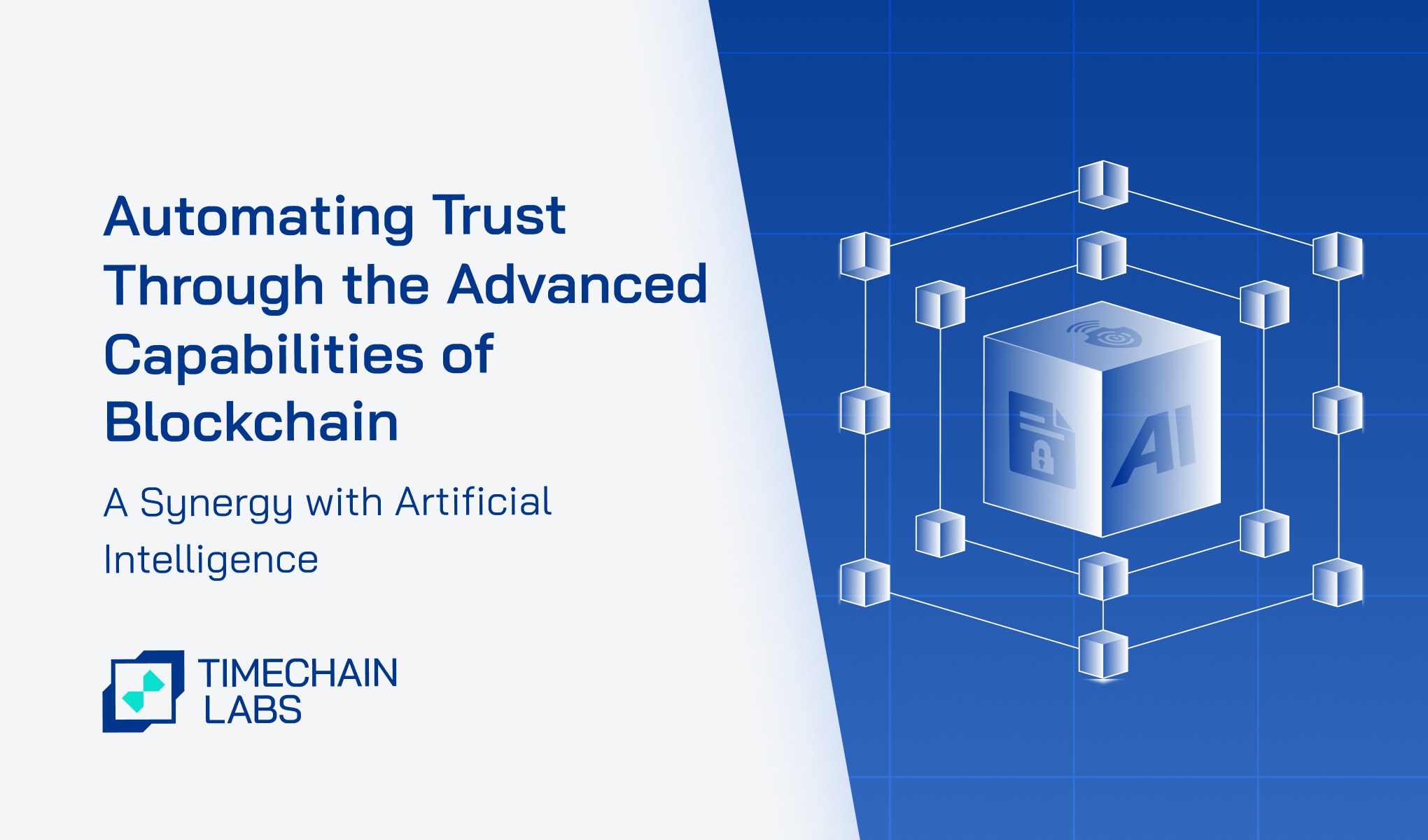Automating Trust Through the Advanced Capabilities of Blockchain
In the fast-paced world of technology, few innovations have generated as much excitement and potential as blockchain. Beyond its association with cryptocurrencies, the core essence of blockchain is facilitating trust automation. This trust revolution becomes even more profound when blockchain is seamlessly integrated with other cutting-edge technologies, such as artificial intelligence (AI). In this blog, we will explore how this tech innovation is fostering trust amongst businesses.
Why Trust Automation is the Current Need of the Hour?
Trust automation has gained much traction as counterfeiting has become a severe concern for businesses. Counterfeiting poses a significant challenge, with annual estimates of counterfeit goods ranging from $1.7 trillion to $4.5 trillion. This places counterfeiting among the top economies globally, surpassing Canada's total GDP and potentially ranking as the fourth largest, exceeding Germany.
The repercussions extend to a global job loss of 2.5 million positions. Shoppers in the United States acquire the majority of counterfeit goods, accounting for approximately 60% to 80% of all such products sold.
The Foundation of Trust: Decentralized Ledger Technology
Blockchain presents a decentralized and distributed ledger that records transactions across a network of computers. This distributed nature ensures transparency, safety, and fixity to form the foundation of automated trust.
Traditionally, trust has been a human-centric concept, relying on institutions and intermediaries to establish and verify credibility. Blockchain challenges this norm by introducing a technology-driven mechanism that automates trust through cryptographic principles.
Transparency as the Catalyst
The transparency embedded in the blockchain is a cornerstone for automating trust. Every participant in the network has access to an identical copy of the ledger, and any changes must be agreed upon by a consensus mechanism. This transparency eliminates the need for a central authority, making transactions visible and verifiable by all parties involved.
Immutability for Unquestionable Records
Immutability, another key feature, enhances the trustworthiness of blockchain. Once a block is added to the chain, altering its contents becomes practically impossible due to cryptographic hashing. This immutability ensures that historical records remain tamper-proof, providing a reliable and unforgeable trail of transactions.
Blockchain and Artificial Intelligence: A Synergistic Symphony
While blockchain alone is a transformative force in trust automation, its integration with artificial intelligence amplifies its impact. These two technologies altogether offer a myriad of opportunities for businesses looking to enhance efficiency, cut costs, and ensure transparency. The following are the innovative methods through which trust is being reinforced and automated:
- Cutting Costs with Smart Contracts:
Smart contracts, self-executing contracts with terms directly written into code, are a powerful application of blockchain technology. In 2022, the worldwide market for smart contracts reached a valuation of $684.3 million. Projections indicate a remarkable growth trajectory with a compound annual growth rate (CAGR) of 82.2% anticipated from 2023 to 2030. When coupled with AI, smart contracts can automate complex processes. It reduces the need for intermediaries and minimizing the risk of errors. For instance, in supply chain management, AI-driven smart contracts can automatically trigger payments upon the successful delivery of goods. It will help streamline financial processes and cut operational costs. - AI-Enhanced Traceability in Supply Chains: When coupled with AI, the transparency and immutability of blockchain facilitate the creation of highly traceable and accountable supply chains. Businesses can gain deeper insights into their supply chains by integrating AI technologies such as machine learning and data analytics. It includes predicting demand, optimizing inventory, and identifying potential bottlenecks, ensuring a smoother and more efficient flow of goods.
- Identity Verification and Fraud Prevention: AI algorithms can be integrated into blockchain systems to enhance identity verification processes. This synergy ensures that identities are securely managed on the blockchain, reducing the risk of fraud and unauthorized access. This is particularly crucial in sectors like finance, healthcare, and government services, where secure and accurate identification is paramount.
According to Juniper Research, anticipated annual losses from online payment fraud are set to escalate to $48 billion by 2023. Researchers have observed a surge in synthetic identity fraud, noting a shift away from conventional identity theft.
Fraudsters are now piecing together fragments of authentic data acquired from breaches to construct synthetic identities. This method is becoming one of the most rapidly growing forms of identity theft in the United States. Therefore, it becomes paramount for businesses to leverage AI-enabled blockchain technology to prevent such fraud.
The Final Words
The real promise of blockchain lies in its capacity to automate trust. When this technology is integrated with artificial intelligence, it transcends its individual capabilities. This synergistic duo is redefining how trust is established, transactions are conducted, and business operations are optimized.
The collaboration of blockchain and AI drives transparency, immutability, and efficiency to usher in a new era of trust automation. It weaves the trust into the fabric of technological innovation seamlessly.
References
https://www.technologyreview.com/2019/06/13/102979/blockchains-real-promise-automating-trust/
https://conexiom.com/blog/the-cost-of-supply-chain-disruptions-20-statistics/
https://www.grandviewresearch.com/industry-analysis/smart-contracts-market-report
